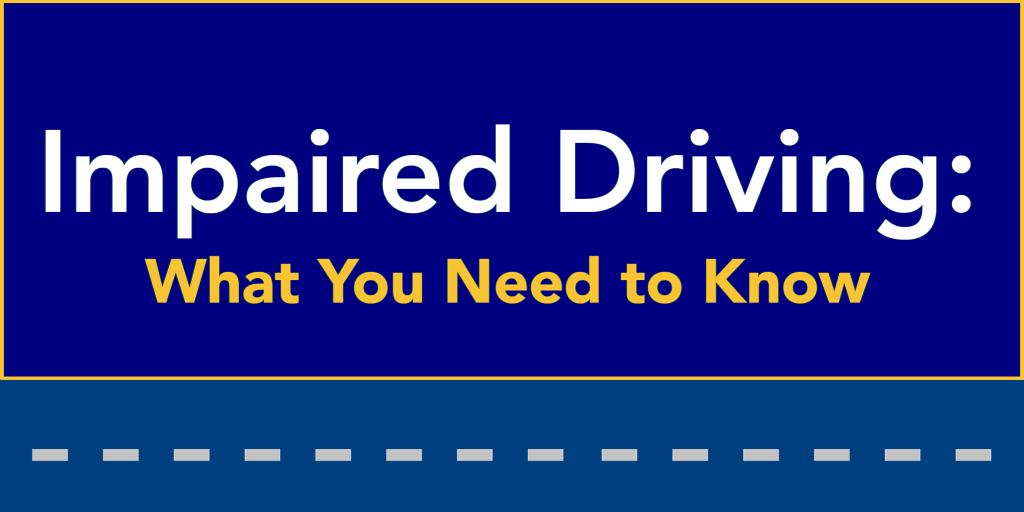Have you ever had a drink or two and wondered if you were OK to drive? Have you ever rode in the car with someone who had been drinking? In the moment, you may not have realized how serious impaired driving is or that you were even engaging in it. The truth is, impaired driving is a serious issue that impacts our communities every day.
According to the National Highway Traffic Safety Association,
“Alcohol not only impairs your ability to drive, it impairs your judgment about whether you can or should drive. Too often, people who drink think they are okay to get behind the wheel because they only feel a “buzz.” The truth is you don’t have to be falling down drunk to be a menace to everyone around you on the highways. Remember, Buzzed Driving is Drunk Driving.”
Every day, 29 people in the United States die in motor vehicle crashes that involve an alcohol-impaired driver. In 2016, 44% of drivers in fatal car crashes in the U.S. (with known results) tested positive for drugs. In that same year, 24% of the traffic fatalities in Georgia were related to drunk driving. Most of these deaths could have been prevented if someone had done something to keep impaired drivers off the road. A Georgia fact sheet can be downloaded here.

While drunk driving has decreased somewhat in recent years, more than 10,000 people still die annually in alcohol-impaired driving crashes – that’s one every 50 minutes. But wait, there’s more to the story. According to the Governors Highway Safety Association, 43.6% of fatally injured drivers in 2016 tested positive for drugs, and over half of those drivers were positive for two or more drugs. After alcohol, marijuana and prescription drugs are most often found in the blood of drivers involved in crashes.
Young drivers are particularly at risk for being impacted by drunk and drugged driving. Vehicle accidents are the leading cause of death among people aged 16 to 19. When you combine teens’ inexperience at driving with the use of substances that have a damaging impact on the brain, the results can be tragic.
The good news is that we can take steps to ensure we remain safe and don’t become a danger to others by understanding the impacts of alcohol and making safe choices.
There are many things we can do to reduce impaired driving. Here are some strategies that everyone can participate in:
- Never allow alcohol to be provided or served to minors. It’s against the law, and it’s dangerous.
- If you’re planning an adult party or social event, make sure there are plenty of non-alcohol beverages provided and that they’re prominently displayed.
- If alcohol is going to be provided, encourage – or insist – that designated drivers be identified early on. Choosing the “less drunk” person to drive at the end of the night is NOT the same thing!
- Provide lots of protein and high carbohydrate food and snacks, but steer clear of salty ones that make people want to drink more. It’s best to have guests eat first so they’re not drinking on an empty stomach.
- If you’re an adult, and you’re thinking about drinking, be aware that there are times when you are more vulnerable to alcohol impairment. If you’ve been feeling sick or rundown, you’re taking medicine that increase impairment when mixed with alcohol, or you haven’t eaten, you may want to reconsider drinking for the time being. If you’re pregnant or need to operate a car or other heavy equipment, choose not to drink at all.
- NEVER drive under the influence of alcohol or other drugs and don’t get into a car being driven by someone who is. Arranging for alternative transportation may save your life.
Our website is full of resources on safe driving, including a blog post on distracted driving, our “Eight Danger Zones for Teens Behind the Wheel” flyer for parents with teen drivers and a blog post about impaired driving during the holiday season.
